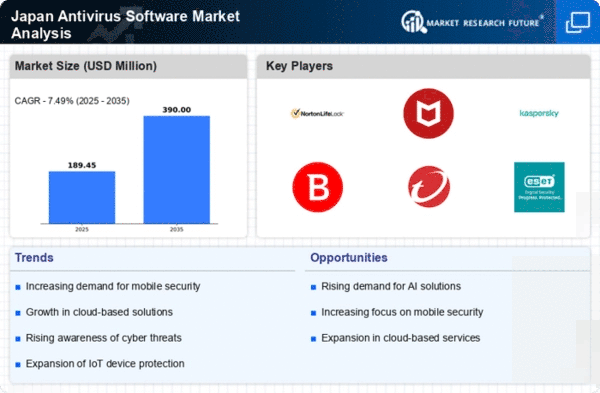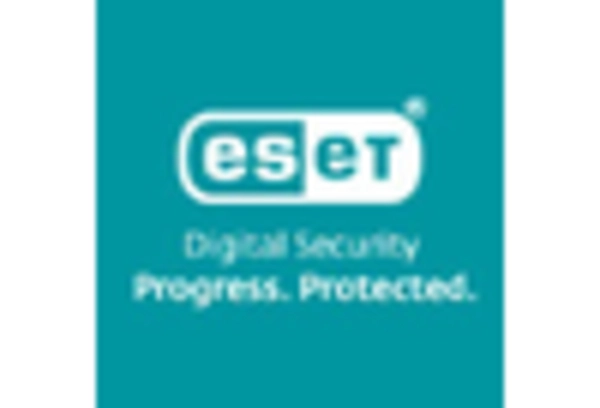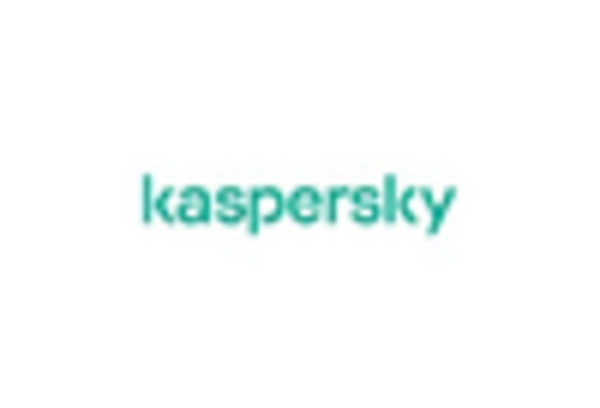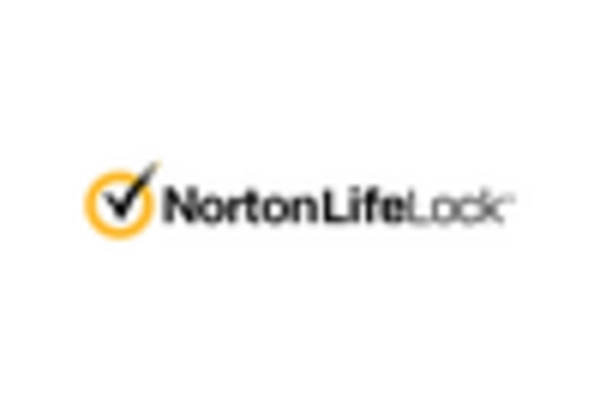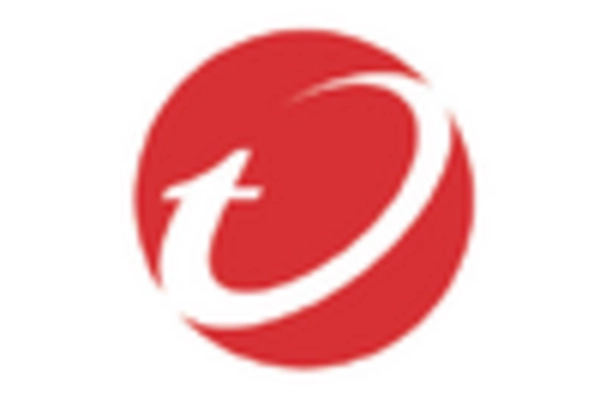Shift to Remote Work
The transition to remote work in Japan has significantly influenced the antivirus software market. As more employees work from home, the attack surface for cybercriminals has expanded, leading to increased vulnerabilities. A survey indicated that 70% of remote workers in Japan reported using personal devices for work-related tasks, which often lack adequate security measures. This shift has prompted organizations to invest in antivirus solutions to safeguard sensitive data and maintain compliance with data protection regulations. The antivirus software market is likely to benefit from this trend, as companies seek to implement comprehensive security protocols that encompass remote work environments. Furthermore, the demand for cloud-based antivirus solutions is expected to rise, as they offer flexibility and scalability for businesses adapting to new work models.
Increasing Cyber Threats
The rise in cyber threats in Japan has become a pivotal driver for the antivirus software market. With incidents of ransomware, phishing, and malware attacks escalating, businesses and individuals are increasingly prioritizing cybersecurity measures. Reports indicate that cybercrime costs Japan approximately $1.5 billion annually, prompting a surge in demand for robust antivirus solutions. As organizations recognize the potential financial and reputational damage from cyber incidents, investments in antivirus software are expected to grow. This trend is particularly pronounced among small and medium-sized enterprises (SMEs), which often lack the resources for comprehensive cybersecurity strategies. Consequently, the antivirus software market is expected to experience significant growth as consumers seek reliable protection against evolving cyber threats.
Regulatory Compliance Requirements
Regulatory compliance requirements in Japan are shaping the antivirus software market. With the implementation of stringent data protection laws, businesses are compelled to adopt robust cybersecurity measures to avoid hefty fines and legal repercussions. The Personal Information Protection Act (PIPA) mandates that organizations implement adequate security measures to protect personal data, which includes the use of antivirus software. As compliance becomes a critical concern, the demand for antivirus solutions that meet regulatory standards is likely to increase. This trend is particularly relevant for industries such as finance and healthcare, where data breaches can have severe consequences. Therefore, the antivirus software market is expected to grow as companies seek solutions that not only protect against threats but also ensure compliance with evolving regulations.
Technological Advancements in Security
Technological advancements in security solutions are driving innovation within the antivirus software market. The integration of machine learning and artificial intelligence into antivirus products enhances their ability to detect and respond to threats in real-time. In Japan, the market for AI-driven cybersecurity solutions is projected to grow at a CAGR of 15% over the next five years. This growth is attributed to the increasing sophistication of cyber threats, necessitating more advanced protective measures. As antivirus software evolves to incorporate these technologies, consumers are likely to gravitate towards solutions that offer proactive threat detection and automated responses. Consequently, the antivirus software market is poised for expansion as companies strive to stay ahead of emerging cyber risks.
Consumer Demand for Comprehensive Security Solutions
Consumer demand for comprehensive security solutions is a significant driver of the antivirus software market in Japan. As individuals become more aware of the risks associated with online activities, they are increasingly seeking antivirus products that offer a wide range of features, including malware protection, firewall capabilities, and identity theft protection. Market Research Future indicates that approximately 60% of Japanese consumers prioritize multi-functional security solutions over standalone antivirus products. This shift in consumer preference is prompting software developers to innovate and enhance their offerings, leading to a more competitive landscape. As a result, the antivirus software market is likely to witness growth as companies respond to the evolving needs of consumers who desire holistic protection against various cyber threats.


